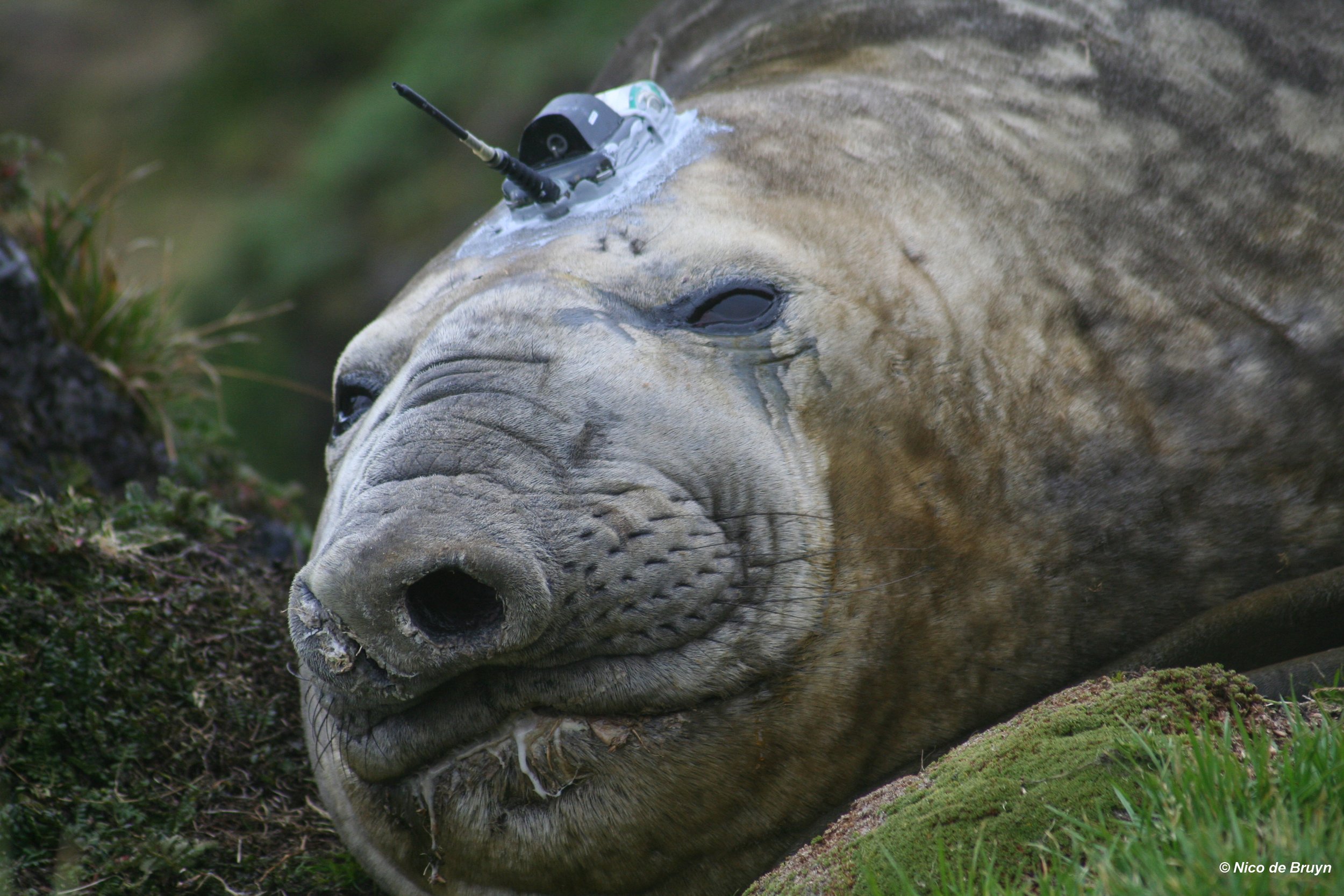Marthán Bester wins Gold Medal of the ZSSA
/Prof Marthan Bester sharing his thoughts and thanks during his Gold Medal award acceptance speech.
Prof Marthan Bester (2nd from the left) was awarded the ZSSA Gold Medal for his outstanding achievements in Zoology.
The MIMMP is delighted to share the news that our ‘founder’, Emeritus Professor Marthan Bester, was awarded the distinguished Gold Medal of the Zoological Society of Southern Africa at the 39th ZSSA Congress held in Skukuza, Kruger National Park!
The Gold Medal award is presented biennially by the ZSSA Council for outstanding achievements in Zoology in Southern Africa over a number of years.
Award Citation:
“Marthán Nieuwoudt Bester has been instrumental in the continuing presence of scientific researchers in the South African Subantarctic. Marthán’s lifelong dedication to marine mammal conservation and research in the Southern Ocean and Antarctica is evidenced in his impressive publication record, supervision of students, capacity building of conservationists, field workers, students and colleagues.
His diplomacy in policy and management, alongside scientific excellence has resulted in continuation of long-term research programmes through turbulent times in South Africa’s history. He has promoted Antarctic awareness and research not only to his students and colleagues, but to thousands of undergraduates, schoolchildren and the public through publications, lectures and radio/ television appearances.
Marthán’s early work (1970’s) on morphology, biology and ecology of Subantarctic fur seals Arctocephalus tropicalis, remains fundamental work to date. He completed his DSc at the University of Pretoria (UP) in 1978. At UP (associated with Department of Transport - later Environmental Affairs) he became a Biologist undertaking 6-13 month expeditions to Gough and Marion islands (1974-1978), and Kerguelen and Marion Islands (1979-1982). He accompanied multinational expeditions to Southern Ocean islands (e.g. Heard, King George, Amsterdam islands) and Antarctica as researcher, and facilitated student involvement in international research expeditions to Bouvetoya, Macquarie Island and Antarctica. Between 1982-1996 he became Antarctic Research Officer (Mammals) to the Department of Environmental Affairs. During the period 1997–2002 he was promoted from Lecturer to Full Professor (2002–present) at UP. He has supervised 38 MSc, 13 PhD’s, 10 Postdoctoral fellowships to completion; with 3 MSc in progress, and continues to collaborate with leading academics from every continent (despite being retired).
His foremost scientific legacy: He conceived, initiated, maintained and managed (uninterrupted from 1983-2013) the intensive Marion Island southern elephant seal mark-recapture research endeavour. This programme stands as one of the longest running and most important large mammal datasets in existence globally and the foremost of its kind for the species. His research activities have led to the generation of >223 peer reviewed publications, as well as numerous (>100) technical reports, policy documents, book chapters, protocols and other literature authored and co-authored by MNB. His H-factor is 30: ISI Web of Science (31 July 2018), and his work has been cited >3000 times. Thomson Reuters ISI Essential Science Indicator 2013: MNB was listed in top 1% of researchers globally for Animal and Plant Sciences. He has been awarded five Outstanding Academic Achiever awards by UP and an honorary award for the feral cat eradication effort on Marion Island, by the DST Centre of Excellent for Invasion Biology, Stellenbosch University. His further recognition includes, amongst others being scientific advisor to RSA government sub-directorate on Antarctica and Islands, and a member of various national management and advisory groups and committees related to Antarctica and Prince Edward Islands (1984-2016). He served as a full member of SCAR (Scientific Committee for Antarctic Research) Group of Specialists on Seals (GSS) (1984-2002); a founding member of the Antarctic Pack Ice Seals (APIS) steering committee of SCAR (1994-2002); Secretary of GSS and then revamped Expert Group on Seals (EGS) of SCAR (2000-2006); chair of the EGS (2006-2008), and is currently an Honorary conservation officer for the Government of Tristan da Cunha. He serves on editorial boards of Marine Ecology Progress Series, Polar Biology, and African Journal of Wildlife Research; has reviewed for ~50 internationally accredited journals, and has served as external evaluator on >70 dissertations/ theses, and grant - and peer review panels.
In addition to his achievements in the field of marine mammalogy, he led the programme which successfully eradicated feral cats from Marion Island. This work involved a commitment which lasted two decades (1972-1992), was (and remains) the largest successful island eradication of feral cats in history and has resulted in the recovery of the avian biodiversity on the island. He enabled >120 South African field assistants/students from a variety of cultural backgrounds to spend expedition years at Marion Island. As a consequence of their expedition research and experience gained, most of these “Sealers” have completed postgraduate degrees, and hold influential positions in research and conservation both nationally and internationally. His achievements are not only a result of his tremendous foresight, but also of dedication and a remarkable capacity for hard work. He is an excellent ambassador for Antarctic research, influential marine mammal scientist and a role model for many. Marthán’s mentoring success has been enhanced by his ability to encourage students and colleagues to look beyond his areas of expertise and he has facilitated this development by providing contacts with his wide global network of colleagues. He has always demonstrated great humility in the high profile world of marine mammal research and is not afraid to admit he does not know everything, and will assist colleagues and students alike to seek answers to their questions. He derives great pleasure in his students advancing their knowledge beyond his own, and provides every opportunity for them to do so. This is a critical attribute in encouraging a new generation of scientists who will look beyond current paradigms.”



















